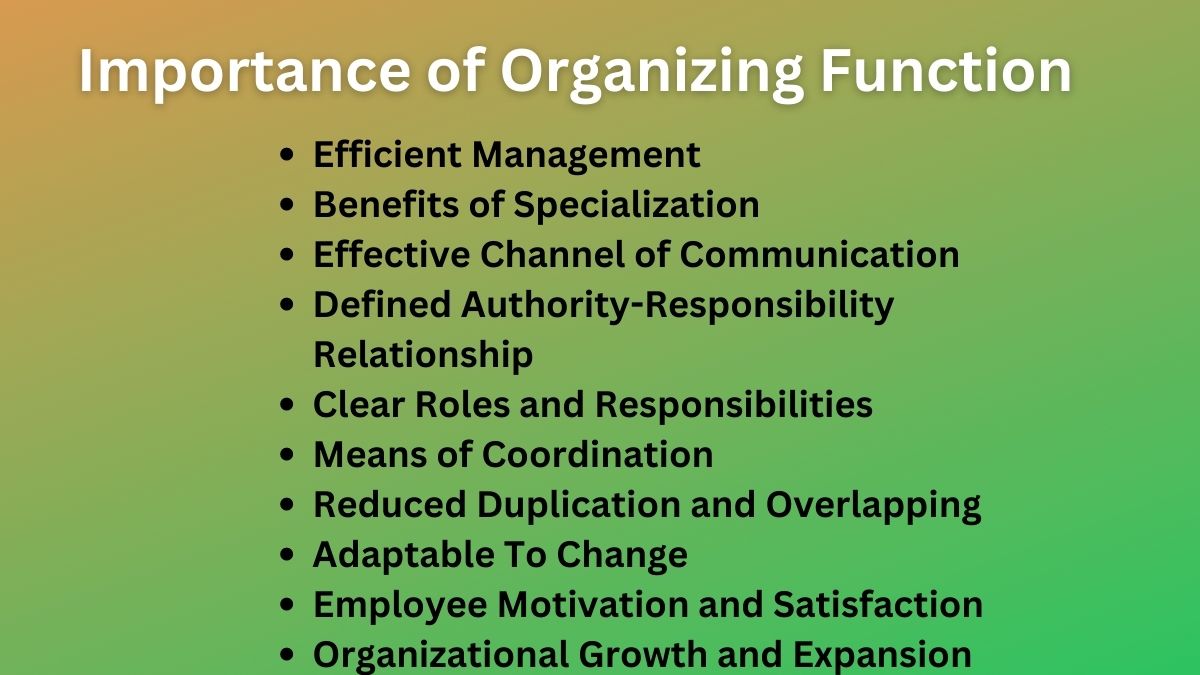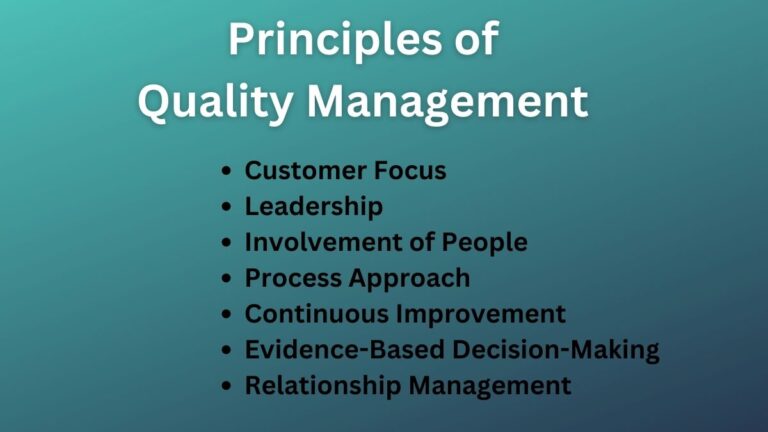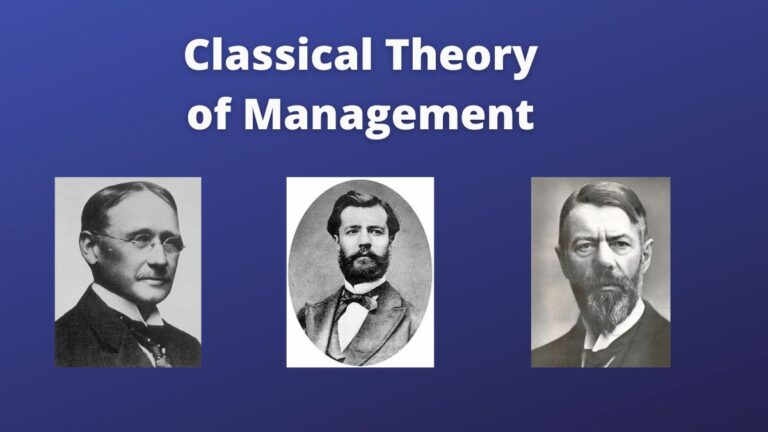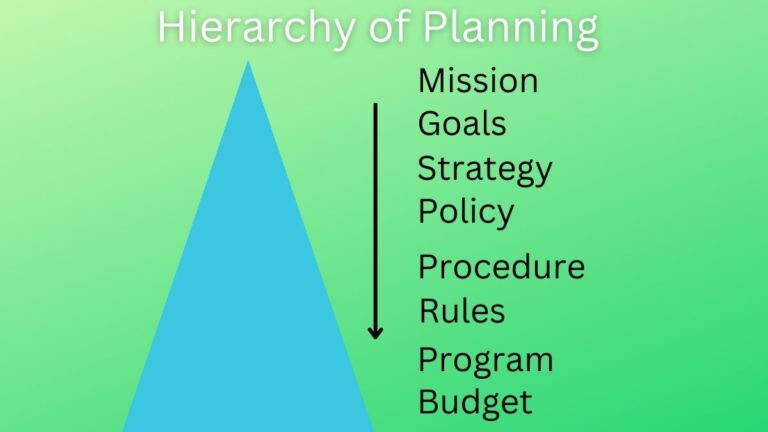10 Importance of Organizing Function in Business [Explained]
Importance of Organizing
Organizing is an effective management function if implemented effectively can pave the way for companies to successfully walk in a dynamic business environment. Following are the 10 points that justify the importance of organizing in business.
Efficient Management
A good organizational structure is the foundation of effective and efficient management. It is the means by which a manager directs, controls, motivates, and coordinates his subordinates.
A sound organizational structure is desirable to make every company member of the organization’s goals and their role in this. As a result, they are clear and work without delay and the jobs are done in an efficient manner.
Benefits of Specialization
Organizing also breaks down a complex task into its components so that each of the components can be done with ease. In addition, it ensures giving the specific task to specific employees based on their interests, experience, and skills.
This is an effective way to reduce employees’ workload and increase employee productivity since they do specific jobs on a regular basis. When they do the same task in a repetitive manner they gain special experience in that area which is the starting point of specialization.
Effective Channel of Communication
Organizing also creates job positions logically allocates responsibilities into various levels and coordinates them. It defines the scalar chain through which communication channels work.
Under this organizational structure, each level of members communicates with one another through this unbroken line without any interruption. This chain serves as the means of a communication channel to transmit messages created at different levels of management to desired persons or positions.
Related: Principles of Organizing
Defined Authority-Responsibility Relationship
Organizing establishes a clear relationship between authority and responsibility. Organizing fixes authority-responsibility positions among the different levels or positions of employees within the organization.
Organizing allocates the responsibilities of employees and necessary authority with careful calculation. Its goal is to maintain a perfect balance between the task to be and the authority required to do it.
Through this, organizing protects the organization from violation of authority and also increases the feeling of self-responsibility.
Clear Roles and Responsibilities
One of the notable importance of organizing is that it clearly defines roles and responsibilities among employees. As a result, every employee is friendly with his job and concentrates on it without any interruption.
They are all clear on who has to report to whom. This helps to minimize misunderstandings among employees and increases mutual cooperation and productivity.
Means of Coordination
Organizing is the means of coordination. As in coordination, the effort is directed to manage people and tasks in a way they work together properly. The organizing’s goal is also the same.
The process of organizing establishes official ties between various management levels and ensures mutual cooperation. Employees are at ease exchanging ideas, skills, knowledge, and courage at work.
Reduced Duplication and Overlapping
Because organizing breaks down tasks into units, divisions, and departments, managers can see exactly what needs to be done at what level, and with whom. As a result, all necessary tasks can be completed without overlap or repetition.
Related: Process of Organizing
Organizing in this way helps to furnish required jobs at the right time by the right person at the desired level of output.
Adaptable To Change
Organizing is also a flexible management tool. At the core of organizing the functions of it are designed to match in changing business environment.
Organizing comes with the necessary facility to make revisions to the organizational structure as per necessity if the outside world demands it. Organizing paves the way for a smooth transition by allowing the organization structure to be appropriately updated and the inter-relationships among managerial levels to be revised.
Employee Motivation and Satisfaction
The perfect organizing function allocates the jobs to the right person on the basis of their knowledge, skills, experience, and interest. Organizing creates specialization at the job which reduces unnecessary efforts at the job.
Better coordination, cooperation, and communication established by organizing function increases employee job satisfaction. This motivates employees for long tenure and improved performance.
Organizational Growth and Expansion
Because of the organizing function, organizational resources are optimally utilized, employees get specialization & productivity increases, and work is done without any confusion & delay as a result efficiency is achieved, managers are encouraged to make challenging decisions, all work is in a coordinative manner, etc. All these are supportive of organizational growth and expansion.
Read Next: Characteristics of Organizing
Sajan Kushmi is a content writer with more than 4 years of experience. He holds BIM Degree. He write on the topics related to Management, Marketing, and Entrepreneurship.






